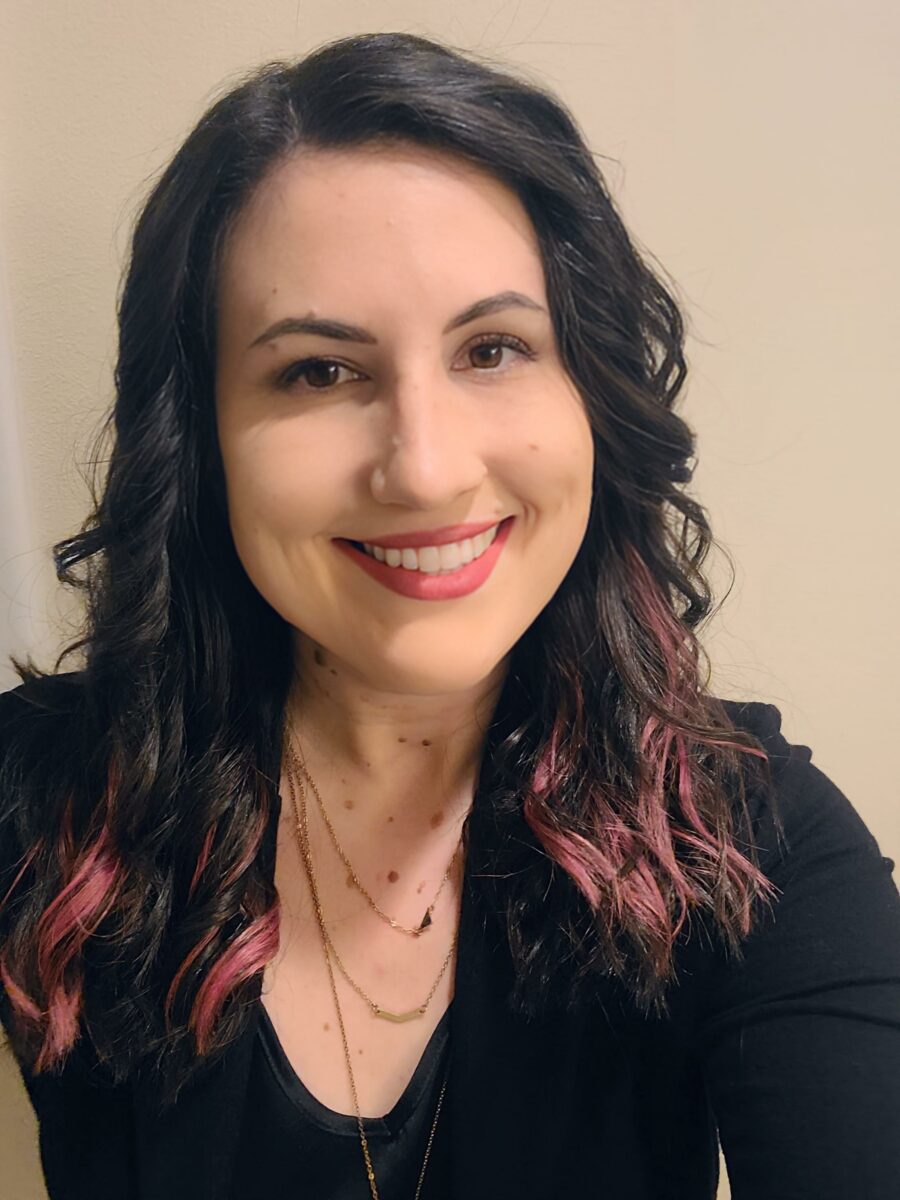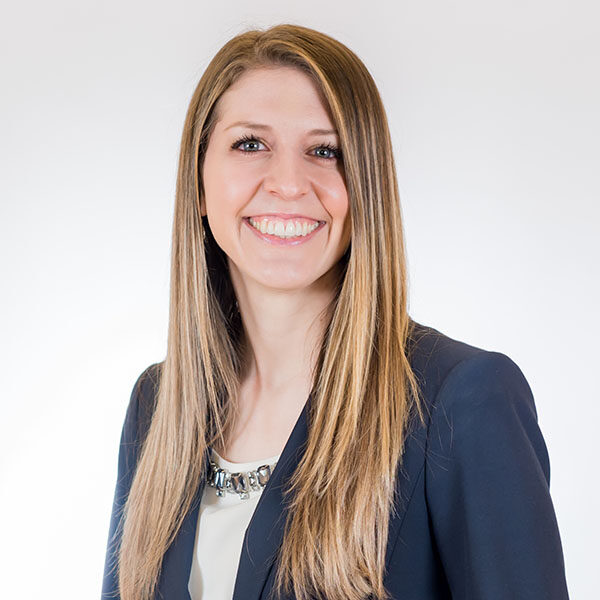March is Women’s History Month, a time to celebrate the many contributions that women have made throughout history and continue to make today. This month, we are proud to join the rest of the country in celebrating Women’s History Month and shining a light on the remarkable women within our organization.

Corissa steinman
Systems Manager
To celebrate the “history” part of Women’s History Month—is there a woman from history that you find especially inspiring?
Starting from a young age, I have enjoyed learning about US history and the fight for women’s suffrage. Someone I find inspiring regarding her contribution to women’s suffrage, amongst other things, is Ida B. Wells. Although she faced racism and sexism, Ida continued to push for all women’s right to vote throughout her lifetime. She marched in the first suffrage parade in the early 1900s and founded groups such as the Alpha Suffrage Club and the National Association of Colored Women. Her resilience, belief that all people are equal, regardless of gender, and the mark she left on history is truly incredible.
What have been your barriers and how did you overcome them?
The biggest barrier I have faced is being challenged and disregarded when it comes to my opinions and thoughts if there is a man involved who is also sharing his thoughts on a subject. To overcome this, I remain consistent in my opinions and voice them regularly. I ensure my ideas are always heard and provide evidence to back them up when needed.
Why do we need more women in leadership?
As Beyonce said “Who run the world? Girls!” To put it in layman’s terms, women get things done. We are masters of multitasking! We can rear children, work a full-time job, and still make time for a million other things all at once. My strong belief is that women in leadership can help to build up other women and help them to reach their goals. Women empowering other women is a powerful tool and can lead to fantastic results in both business and life in general.
What’s the best advice you’ve ever been given?
A good friend once told me that fear doesn’t have to hold you back from pursuing the things you want out of life, personally or professionally. The things that scare you are often the most rewarding. She shared her favorite acronym for FEAR – Face Everything and Rise. This is advice I’ve carried with me and have lived by in the years since. From beginning a new hobby in stand-up comedy last summer to always pushing to make it to the next step professionally, I don’t let fear hold me back.
What should today’s leaders do to empower the next generation of women leaders?
I hope that today’s leaders will continue to fight for gender equality and to erase the wage gap so that the female leaders of the future may face less adversity in their future career pursuits. They should continue to dream big and always fight to reach their goals and be treated equally. Kamala Harris becoming the first female Vice President is such an empowering advancement for women, and I hope we will see many more in the years to come.
Ann salonen 
Assistant Community Manager
To celebrate the “history” part of Women’s History Month—is there a woman from history that you find especially inspiring?
Mother Theresa and St. Joan of Arc
What have been your barriers and how did you overcome them?
I worked in Abu Dhabi, UAE ten years ago. Most people (especially males) underestimated me, doubted my capability and my skills on the job just because I’m a female.
I just kept quiet. After I finished, they were shocked that I could do the same exact thing that my male coworker did.
Why do we need more women in leadership?
To give another perspective on issues that men don’t have.
What’s the best advice you’ve ever been given?
Don’t let anybody underestimate or intimidate you. Seize the opportunity to equip/upgrade yourself.
What should today’s leaders do to empower the next generation of women leaders?
Today’s leaders could lead by example; model behavior that would encourage future generations of women to want to lead.
Jordan Restad 
Creative Marketing Manager
To celebrate the “history” part of Women’s History Month—is there a woman from history that you find especially inspiring?
As an undergrad studying architecture, there was only one woman whose name I regularly saw in our academics – Zaha Hadid. She was the first female recipient of the Pritzker Architecture Prize and broke other barriers in an industry where women were (and are) notoriously underrepresented. Her talent, skill and ability to carve out a spot for herself in the world of architecture where women had not previously been included were exceptionally inspiring.
What have been your barriers and how did you overcome them?
Early on in my career, I struggled with doing a lot of the design work but then being asked to hand it off to others for presentations – having someone else pitch your work and not having a seat at that table for those discussions was disheartening. I started working on my public speaking and presentation skills so that there was no reason not to include me. I advocated for myself that I deserved the opportunity to pitch my own work.
Why do we need more women in leadership?
Thrive’s status as a primarily women-owned business was a big factor in my choosing to become an employee here. So many of the big conversations that happen that set a course for a company are often missing women’s perspectives – but having women in leadership roles that can influence the direction, the policies, and the culture is a huge draw for potential talent.
What’s the best advice you’ve ever been given?
I’m not sure I have a worthwhile answer for this one, so instead, I’ll plug my favorite podcast No Stupid Questions, particularly “Episode 65: What’s the Best Piece of Advice You’ve Ever Received?” If you want some exceptional pieces of advice and some food for thought.
What should today’s leaders do to empower the next generation of women leaders?
Nothing made as big of an impact on me as when I was working within a freelance capacity and a woman I was contracting with told me the rates she had charged on our project were 3x more than what I was charging. I began to realize that I was undervaluing my work by quite a bit and was completely unaware of it. Now, when I meet another woman who I have a feeling is undervaluing her work or ability, I try to do the same – reach out and encourage them to ask for a little bit more or reach a little bit higher. The worst outcome is that you get a “no” back – and even then, you’re not in a worse position than where you started.
Denika Florence 
Community Manager
To celebrate the “history” part of Women’s History Month—is there a woman from history that you find especially inspiring?
Noemi Ban has always been one of the most influential and inspiring women I have ever had the privilege of meeting. Noemi was a Holocaust survivor who endured months of starvation, filth and the neverending threat of being killed. When the Allies approached in 1945, Nazis forced her and 1000 other women on a death march. Noemi, along with 12 other women, escaped into a nearby forest. She was eventually able to return to Hungary, where she reunited with her father, the only other surviving member of her family. After everything that she has gone through and survived in her life, she is still one of the kindest people I’ve ever met.
What have been your barriers and how did you overcome them?
I always felt that growing up in a smaller town, I wouldn’t be able to have a career or travel the world, but I made an effort to step out of my comfort zone and take risks.
Why do we need more women in leadership?
We need more women in leadership because they bring different values and perspectives to the workforce, which allows for a more well-rounded workplace.
What’s the best advice you’ve ever been given?
We are born looking like our parents and we die looking like our decisions. Make decisions that you are proud to resemble throughout your life.
What should today’s leaders do to empower the next generation of women leaders?
I think today’s leaders should show the next generation that they are capable of anything they set their minds to.
Brittany flajole 
Vice President of Human Resources
To celebrate the “history” part of Women’s History Month – is there a woman from history that you find especially inspiring?
The one that I find most inspiring is Oprah Winfrey. What is particularly inspiring to me about Oprah is her commitment to using her platform to make a positive impact in the world. She has overcome so much in her personal life and shares the lessons she’s learned with the world. She has also been a vocal advocate for social justice and has used her influence to raise awareness of important issues such as spirituality, education, healthcare, and poverty. Finally, she has been a champion for women’s rights and has used her platform to support and empower women around the world.
What have been your barriers and how did you overcome them?
I feel very fortunate to work for Thrive where there are many female leaders and their voices are valued equally. At Thrive, in my experience, if you are willing to take initiative and put in the work to be successful in your role, your hard work will be rewarded. That said, it did take me investing in my education to have the opportunities that led me to Thrive. So I encourage all associates to take advantage of their education funds to continually sharpen their knowledge and skills.
Why do we need more women in leadership?
I would say I think we need a balance of all perspectives in leadership. Women often provide perspectives that are different than men, but in general, to have multiple perspectives from people with disabilities, races, ages, and sexual orientations will provide more well-rounded decision-making overall. Having as many perspectives as possible in leadership allows the policies created to work for the most people possible.
What’s the best advice you’ve ever been given?
As a woman who always wanted to start a family as well as have career ambitions, the best piece of advice I ever read came from Sheryl Sandberg’s book “Lean In.” Sandberg encouraged women to prioritize their career ambitions, especially if they were going to need to work to provide for themselves and their families. She stated that women who want children often hold back from advancing in their careers early on because they are concerned about how their career could accommodate their family plans. However, her advice is to “lean in” while you have the freedom so that if you have to return to work, you can do so from a position of excitement and fulfillment. I took that to heart and, even now, pursue my career goals wholeheartedly as a working mother in an effort to make my children proud and create opportunities for others.
What should today’s leaders do to empower the next generation of women leaders?
Be the example they’d like to see. Mentor women or anyone that expresses a desire to grow. Most importantly, create inclusive work environments where your team members feel like they can be themselves while also being challenged to grow professionally.
